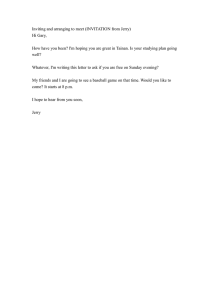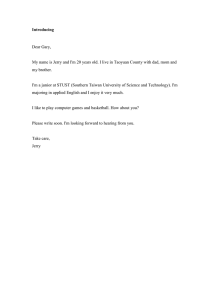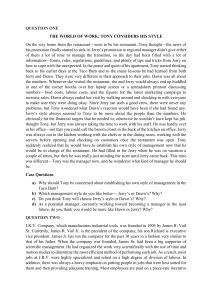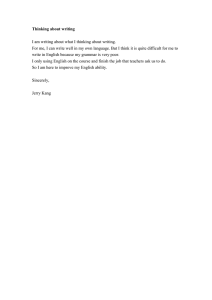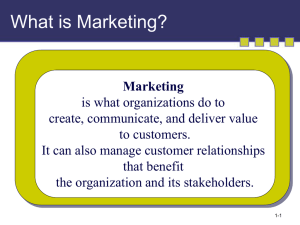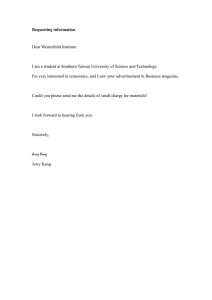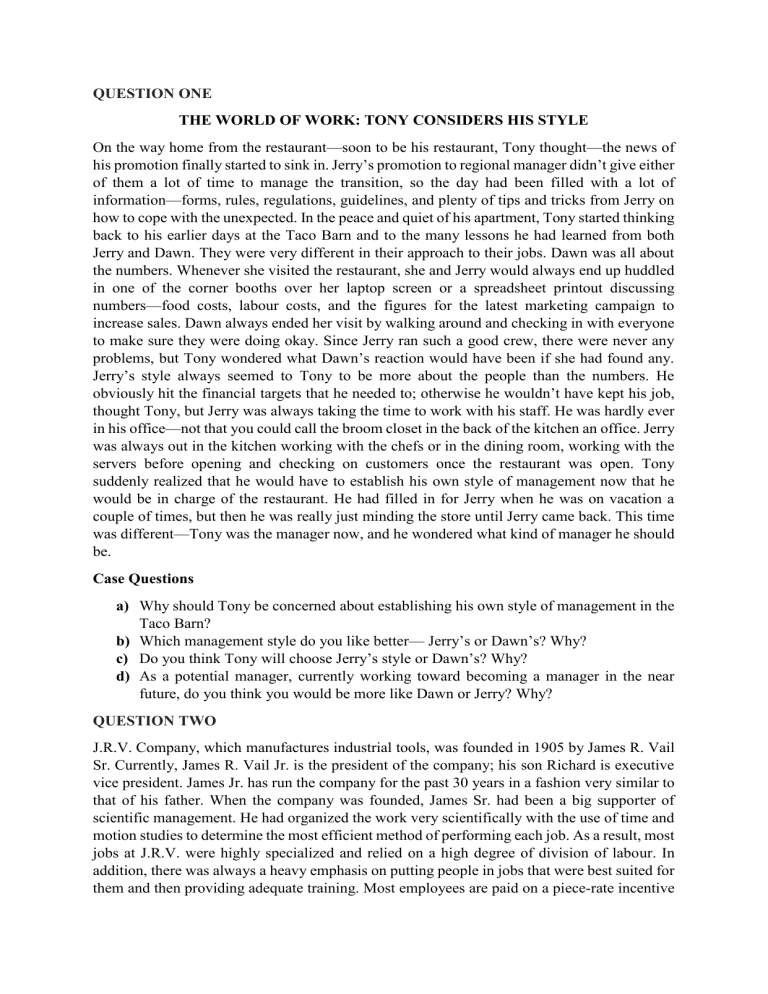
QUESTION ONE THE WORLD OF WORK: TONY CONSIDERS HIS STYLE On the way home from the restaurant—soon to be his restaurant, Tony thought—the news of his promotion finally started to sink in. Jerry’s promotion to regional manager didn’t give either of them a lot of time to manage the transition, so the day had been filled with a lot of information—forms, rules, regulations, guidelines, and plenty of tips and tricks from Jerry on how to cope with the unexpected. In the peace and quiet of his apartment, Tony started thinking back to his earlier days at the Taco Barn and to the many lessons he had learned from both Jerry and Dawn. They were very different in their approach to their jobs. Dawn was all about the numbers. Whenever she visited the restaurant, she and Jerry would always end up huddled in one of the corner booths over her laptop screen or a spreadsheet printout discussing numbers—food costs, labour costs, and the figures for the latest marketing campaign to increase sales. Dawn always ended her visit by walking around and checking in with everyone to make sure they were doing okay. Since Jerry ran such a good crew, there were never any problems, but Tony wondered what Dawn’s reaction would have been if she had found any. Jerry’s style always seemed to Tony to be more about the people than the numbers. He obviously hit the financial targets that he needed to; otherwise he wouldn’t have kept his job, thought Tony, but Jerry was always taking the time to work with his staff. He was hardly ever in his office—not that you could call the broom closet in the back of the kitchen an office. Jerry was always out in the kitchen working with the chefs or in the dining room, working with the servers before opening and checking on customers once the restaurant was open. Tony suddenly realized that he would have to establish his own style of management now that he would be in charge of the restaurant. He had filled in for Jerry when he was on vacation a couple of times, but then he was really just minding the store until Jerry came back. This time was different—Tony was the manager now, and he wondered what kind of manager he should be. Case Questions a) Why should Tony be concerned about establishing his own style of management in the Taco Barn? b) Which management style do you like better— Jerry’s or Dawn’s? Why? c) Do you think Tony will choose Jerry’s style or Dawn’s? Why? d) As a potential manager, currently working toward becoming a manager in the near future, do you think you would be more like Dawn or Jerry? Why? QUESTION TWO J.R.V. Company, which manufactures industrial tools, was founded in 1905 by James R. Vail Sr. Currently, James R. Vail Jr. is the president of the company; his son Richard is executive vice president. James Jr. has run the company for the past 30 years in a fashion very similar to that of his father. When the company was founded, James Sr. had been a big supporter of scientific management. He had organized the work very scientifically with the use of time and motion studies to determine the most efficient method of performing each job. As a result, most jobs at J.R.V. were highly specialized and relied on a high degree of division of labour. In addition, there was always a heavy emphasis on putting people in jobs that were best suited for them and then providing adequate training. Most employees are paid on a piece-rate incentive system, with the standards set by time and motion studies. James Jr. has largely continued to emphasize scientific management since he took over. All employees now receive two weeks of paid vacation and company insurance. Also, employees are generally paid an average wage for their industry. The present J.R.V. building was constructed in 1920, but it has had several minor improvements, such as the addition of fluorescent lighting and an employee lunchroom. James Jr. is planning to retire in a few years. Recently, he and Richard, his planned successor, have disagreed over the management of the company. Richard’s main argument is that times have changed and time and motion studies, specialization, high division of labour, and other company practices are obsolete. James Jr. counters that J.R.V. has been successful under its present management philosophy for many years and change would be “foolish.” Case Questions a) Give a title to the passage b) Do you agree with Richard? Why or why not? c) Are the principles of scientific management applicable in today’s organization? Explain your answer. d) What are James Jr.’s reasons for keeping things the way they are? e) What kind of changes do you think Richard would like to make? QUESTION THREE Recently, a professor at State University was lecturing in a management development seminar on the topic of motivation. The participants candidly discussed problems that existed in their respective organizations. Problem areas mentioned included absenteeism, turnover, and poor workmanship. The participants managed a variety of workers, such as automobile assembly workers, clerical workers, computer operators, sanitation workers, and even some middle-level managers. During the discussion, one of the participants made the following statement: “What we need to stop all of these problems is a little scientific management.” Case Questions a) Give a title to the passage b) What do you think the person means by the statement: “what we need to stop all of these problems is a little scientific management.” c) Do you agree and why or why not? d) Take one of the jobs in the above case, and show how you could apply scientific management. e) What would be the human relations approach to the same job you selected in question d?
